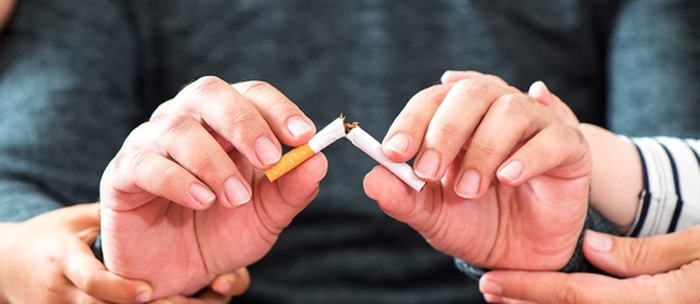 While smoking has declined in recent years, it still remains the country’s leading cause of preventable disease and death, according to the Centers for Disease Control and Prevention (CDC).
While smoking has declined in recent years, it still remains the country’s leading cause of preventable disease and death, according to the Centers for Disease Control and Prevention (CDC).
Despite the many negative health effects of smoking, many people remain unable or unwilling to quit. Caring for a smoker comes with a unique set of challenges and concerns, as does being a smoking caregiver for a non-smoking senior.
Seniors and Smoking
Seniors are far from immune to cigarette smoking. In fact, just over eight percent of people aged 65 and over smoke in the United States. Disabled people, those living below poverty level, residents of the South and Midwest, and people of certain races and ethnicities are particularly vulnerable to tobacco use.
Seniors are not immune to the repercussions of smoking, including everything from an increased risk of disease to reduced quality of life. Not only that, but cigarettes decrease the lifespan of smokers by a staggering 10 years!
While smoking is bad for everyone, it can be particularly dangerous to seniors. Specifically, cigarette smoking among the elderly has been linked to compromised cognitive function; decreased bone mineral density and a resulting weakening of bones, increased risk of injuries, and impaired bone healing; increased chance of cataracts leading to vision impairment; increased risk of circulatory disorders; and certain lung conditions, including asthma, emphysema, and chronic bronchitis -- collectively known as chronic obstructive pulmonary disease (COPD). Seniors are also at higher risk for injuries related to fires and burns, which experts have linked to careless smoking.
Making matters even worse? Seniors can be particularly stubborn when it comes to trying to quit. There is good news, however: When seniors do decide to quit, research shows that they’re more likely to be successful, according to Tobacco Free Life. In other words, while helping a senior quit smoking takes effort, it’s a worthwhile endeavor.
Helping Seniors Kick the Habit
Caregivers can play a vital role in helping aging loved ones kick the habit by encouraging seniors to seek help aimed at addressing both psychological and physiological dependence. Says Care.com,
“For most people, the best way to quit will be some combination of medication, a strategy to change personal habits, and emotional support.”
A number of resources exist which caregivers and seniors may call upon to support quitting, including the American Cancer Society’s QuitLine at 1-800-ACS-2345 (1-800-227-2345); support groups through local hospitals; Nicotine Anonymous groups, and the American Lung Association website.
Due to the perils of secondhand and thirdhand smoke, seniors who give up smoking aren’t just bettering their own health, but also the health of everyone around them. Because of this, some people find that seniors are more likely to quit when aware of the benefits to their loved ones.
Caregivers Smoke, Too
It’s not just seniors who smoke despite all evidence warning them not to. Some caregivers also smoke, which can detrimentally impact the health of the people in their care -- particularly those who are already in a fragile state.
Continues Tobacco Free Life,
“The risks of secondhand smoke are serious for everybody, but especially so for the elderly. Since older people are more likely to have heart problems, and many will have problems with their breathing, adding the risks of secondhand smoke into the mix is particularly dangerous. Additionally, many of the elderly residents may have a history of smoking or exposure to secondhand smoke, so continuing this exposure in old age is particularly risky.”

The overall takeaway, according to Tobacco Free Life, is that smoking
“puts an extra requirement on anybody working as a caregiver in a care home: to protect residents from exposure to secondhand smoke.”
The simplest way to avoid exposing seniors to secondhand smoke -- aside resolving to quit, that is -- is to smoke only in designated outdoor smoking areas which are far away from areas where residents congregate.
But this is just a bandaid, not a cure. If you smoke, Tobacco Free Life proposes that
“Quitting should be your number one priority to protect those under your care.”
mmLearn.org offers a large library of free videos for caregivers of older adults, covering topics pertaining to senior care. Whether you are a healthcare professional or a family caregiver, if you are caring for an older adult we know that you will find mmlearn.org to be an essential learning and guidance tool for all of your caregiver training needs. Access our database of free online caregiver videos today.
